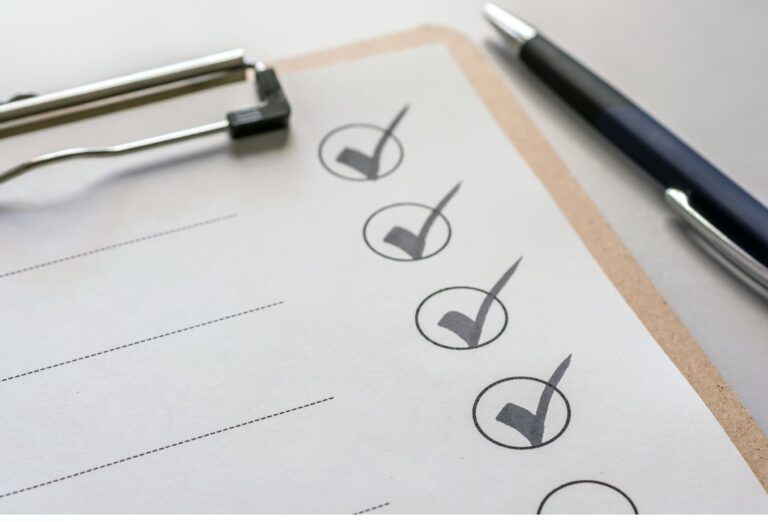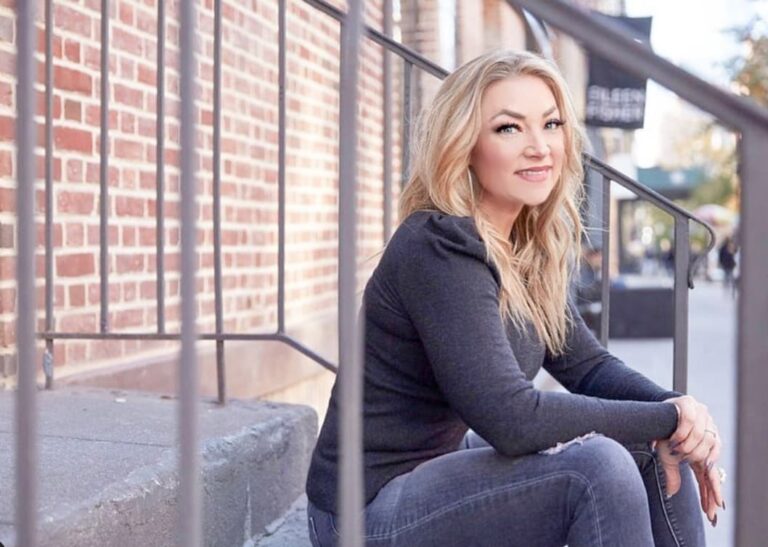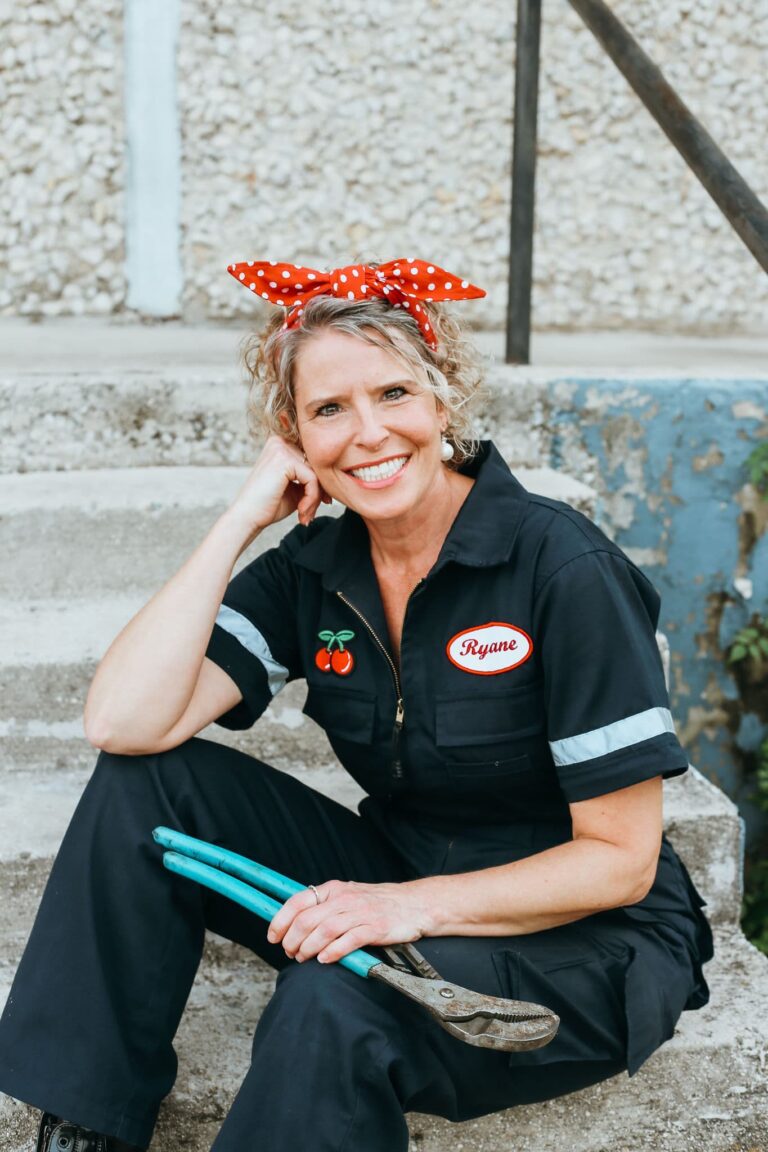How to Handle Third Wheel Thoughts After Your Partner Dies
Do you ever feel like a third wheel or odd person out after losing your partner?
We share our personal experiences around the awkwardness of widowhood in social settings. Because let’s face it. It’s awkward, right?
The thing is, even though these awkward feelings are common among widows, we sometimes create our feelings based on thoughts that just aren’t true. Most people aren’t looking at us in the weird way we think they are or thinking the things we think they’re thinking because they have their own issues to deal with. Other people are thinking about their things, not our things.
The one thing we agree on is our widow’s tendency to look for evidence supporting the belief we don’t belong now that we’re no longer part of a couple. But those are just thoughts our grieving brain tries to impose on us. It’s important to challenge these untrue thoughts because they can make your social isolation so much worse.
We encourage you to listen to this episode of the podcast to get all the insights into how we pushed through the social discomfort, challenged our negative thoughts, and learned a thing or two about ourselves in the process.
Listen to the Full Episode
Watch the YouTube Episode
Connect With Us
- Are you searching for emotional support, practical advice, and guidance on navigating widowhood? Join us in the Widow Squad membership.
- Follow us on Instagram and subscribe to our YouTube channel.
- Get all the widow wisdom you never knew you needed including exclusive content sent right to your email Inbox. Sign up here.
- Join our private Facebook group here.
Episode Transcript
Melissa: Welcome back to The Widow Squad Podcast. We’re glad that you’re here with us. We’ve got Jen Zwinck, Kim Murray, and Melissa Pierce, your hosts of the Widow Squad Podcast.
Melissa: So today we wanted to chat a little bit about have you ever felt like a third or fifth or 7th wheel? You may have had a group of friends that you and your late partner hung out with, and now it’s just you and there’s an odd number. Did you ever feel kind of like the odd person out? And if you did, what kinds of things did you do to remedy that? Because it’s really easy to feel like, well, I’m just not going to go do anything. I’m just going to stay home. Did you do anything to remedy that? Or did you have experiences around that? Jen, let’s start with you.
The Common Experience of Feeling Like the Odd Widow Out
Jen: I have a lot of thoughts about this, but if you’re a widow, then I’m sure that you have experienced this. And if you’re a new widow and you haven’t experienced this, it is something that we all go through. It’s a couple of different situations. Either you don’t want to go and experience social events again, because you already have this thought in your head that it’s going to be awkward. You don’t even leave the house, yet you’re dreading the situation. You’re dreading being out. You feel alone before you even walk out the door.
And of course, it’s just a thought, right? This is all mindset. This is just you feeling that emptiness, feeling that absence of your person. It’s not the truth, right? It’s not. You just believe that you don’t belong. And so you have this feeling before you even leave the house.
Or you’re already at a party, you’re already in a social setting. And then that awkwardness creeps in. And then you look around and you see these other couples. And then you really start to feel it. And you start to feel insecure and you start to really notice it. So, like I said, this happens to all of us. And what we do is when we have this thought in our head, we start to look for evidence to support that feeling, right?
You’ve already decided that you’re the odd man out. And so your brain wants to support you. It wants to tell you that you’re right. And so, of course, you look around and you see these other couples and that just validates that feeling. And it makes you feel, again, less like you belong. Anywhere. I know this happened a lot for me. I experienced that with my close group of friends. But the funny thing is, I had made friends with different people and different couples. I had an acquaintance that came into my life that was not a really close friend, but she was just one of those angel people who steps up into your life. And she invited me to these social events. And these were couples I had never hung out with before. So they only knew me as Widow Jen. They only knew me as a single person without my partner. And for me to step into those social situations with those people that I did not have a past with, that was just a lot easier for me. Coming into that new group and just meeting a lot of new people. Even though it was couples, it was three or four couples plus me.
Melissa: Right. It’s kind of like you’re anonymous.
Yes. And of course, I was aware of it. I’m always out with these couples, but at the same time, they just took me in and embraced me as just me. Because they had never seen me with Brent before, ever. and that made that easier, of course. But again, back to the mindset thing, because it really is, all in your own thoughts. And it’s all what you’re feeling and what you’re thinking about how you’re being perceived. And a lot of times it’s false.
It is.
Nobody’s looking at you like that. They want to enjoy your company. They want to be around you. And they’re extending this invitation to you, because they love you. So my thing is, you have two choices, right? You can either stay home, avoid the situation, which is definitely an option. If you’re having a bad day, that’s okay. You can always say no. What I did a lot is just doing it anyway. Feeling the awkwardness, feeling it, feeling the uncomfortable, and doing it anyway. Because I would always ask myself, what is the alternative? What is it? I sit at home and I’m alone. So that is not a good choice for me. I pushed myself many, many times and I was always glad that I went.
Kim: That’s probably the key. The thoughts about it before you go are worse than the actual experience of going. We do that to ourselves all the time. Yes, we do.
So my advice to this is you’re going to feel it. You will at some point, you’re going to feel awkward and out of place and uncomfortable. Most of the time in my situation, it wasn’t just a third wheel or a fifth wheel situation. It was always when I had to go to parties, like the bigger parties. especially, when all of my friends were turning 40 and literally every month, it was like a 40th birthday party. A 40th birthday party. These big, massive parties. Like, the husband would throw the party for their wife. These are people I’ve known for 20 years. And of course I want to go, but it was party after party after party of me going by myself dressed up in a costume or whatever the event was. And that’s when I really feel it was like, in those big party situations. but again, I was like, you know what? I’m going to get dressed up and I’m going to go, and I’m going to have a good time. Get out there and drink and dance and have a great time. And I’m just very much aware that I am here by myself, but I’m doing it anyway. I’m going to feel uncomfortable walking in, but I’m going to do it anyway. I feel like we always have to push ourselves to do things, and I think it’s important that we don’t let that fear overtake us and stay home and miss out.
Melissa: So did you find that there was awkwardness or anything with your group of friends around you, or did you sense that at all?
Jen: No, it’s all in my head.
Melissa: Okay. and even if you sensed it, it was probably just all in your head.
Jen: Exactly.
Kim: I think we said before, too, though, that we often think people think about us more than they actually think about us. Our world is our world. It’s like all-encompassing things that happen to us. We feel like everybody feels like we feel or thinks like we think or knows what we know and they don’t. So the time that we spend thinking about what other people think about us is too much because they’re not thinking about us that way. They’re thinking about their own things, not our things. But we’re egocentric, so we like to believe that everybody’s thinking about us when they’re probably not as much as we think they are.
Creating Your Own Social Experiences: Inviting Others into Your Widow World
Jen: So, Kim, what did you experience with any third wheel thoughts?
Kim: Well, like what you said, we all felt it. We all feel it. That’s just a normal reaction, right? If you’re alone in a place, you’re going to feel awkward because you think people are looking at you and maybe feeling sorry for you. Maybe they are, but probably 90% aren’t.
What’s interesting is that it was really nothing new for me because I was one of the last of my friends to get married in the first place. So I was single for a long time in my 20s. I often was a third or fifth wheel, even back then. This really wasn’t anything new for me. I mean, I was feeling worse about it because my spouse died. And that was the grief and the sadness.
If I really put it into perspective, it’s like well, that really wasn’t much of anything new because I used to get upset or, I don’t know, disappointed or whatever you want to call it back then, thinking, here I go again to another function as a single person in my 20s.
I think if you just kind of remember past events it may not be the first time you’re experiencing this. You may have had to go through this before, right? So, again, those are the thought patterns you can choose to think about or change. Back then, I had to find dates to go to weddings with or find dates to go to plus one events with. Just thinking about that and putting it into perspective it may not be the first time you’re experiencing this.
I felt that the thing that was the most awkward for me wasn’t being a third wheel or a fifth wheel. It was more like going by myself to places. The thing that was the most awkward for me were the sporting events I had to go to that my kids were in and sitting in that stand by myself.
I would call a friend who had boys similar to my son’s ages that were playing in the football games or whatever and say, “are you going?” And she’d say, “yeah.” I’m like, “I’m just going to meet you there. I’m going to sit with you.” And she’d be like, “fine, no problem.”
I would seek out the people that I knew were going to be at those sporting events and just say, “I know this sounds silly, but I just need you to wave to me or be with me or let me sit with you,” or whatever.
There was one time I stood by the fence of the goalpost of the football field. I made myself stand there by myself for the duration of the game, just almost to prove that it wasn’t going to kill me. Like, I can do this, right? I can stand here and do this.
That was more of the “being alone” situation that made me uncomfortable. But the third and fifth wheel parts weren’t too bad. I just decided early on, too, that I was just going to do what I wanted to do when I wanted to do it. Like you said, Jen, you don’t have to go out if you don’t want to. There’s going to be times when you’re like, I’m declining the invitation, but thanks anyway, right? The premise that we always want to be invited, so please keep inviting us, but we may say no 50%, 75% of the time, but just keep inviting us.
My husband and I had season tickets to the Fisher Theater here in Detroit. We would go to see all the Broadway shows. The season tickets give you maybe six or seven shows a year. That was a big date night for us. When he died, I had to decide, do I continue going to the Fisher Theater without him, or do I just stop and cut it off, because that was our thing and be done with it? Well, I love the theater. I love the shows. And he had told me he wished I would continue going to the theater. So I said, okay, I’m going to do that. I would just invite my friends. I had six or seven shows a year. I would keep a list of who I invited to which show so that I could rotate them from year to year.
So I still have the tickets, I still invite my girlfriends, and we make that a fun night out. Now I’m remarried, and I have invited my current husband to go. He’s not as happy about attending Broadway musicals as I am, and my girlfriends are. So if I can’t find somebody to go with me, he’ll jump in. But now it’s a girl’s night. What used to be a date night for my husband, now it’s a girl’s night out, and we have a blast. I just decided to keep doing that and invite people on my own.
I think that when you invite people into your world, then they realize that even though you’re grieving, you’re still living and you’re still able to go and do things. I think by inviting people into your world, you give them permission to be with you, even though you’re sad or even though you’re grieving. And then they can understand a little bit more about how that works in your world. So I did that with the Fisher Theater.
And then, a year after my husband died, I had a Halloween party at my house because I love Halloween, and I had a crap ton of decorations that I wanted to put up. But I thought, well, it’s a lot of work, right? You know, after your spouse dies, doing all the Christmas decorations, Halloween decorations, whatever, can be a little overwhelming. So I’m like, well, if I’m going to put all these decorations up, what else can I do? I can have a party. I was like, I’m going to have a Halloween party because I love it so much. And I also wanted to let people know that I was doing okay. As okay as you can do a year after your spouse dies. Right. But I was doing okay. And welcome them into my home to see that yes, I’m struggling in certain areas. I’m still grieving the loss of my husband, but I can have a party, too, and you guys can come and we can drink and have hors d’oeuvres and dance and sing.
I had a karaoke machine, so we sang songs on the karaoke machine and had a blast. I think there was one other friend that came with her other single friends. So the three of us were the only single people in this room full of couples, but it gave my friends an opportunity to see that, okay, maybe it’s not so uncomfortable being in Kim’s presence, or maybe it’s not so uncomfortable being in a party scene with her. That was one of the best decisions I made. And people still talk about that party. That’s how much fun we had.
Then a couple of years later I was turning 50, and I decided to throw myself a 50th birthday party. I rented a hall, hired a DJ, got a caterer, and people came and we danced and we sang and we drank and we laughed and we had a blast.
So that’s my advice, if you want to do something, invite people into your world because they’re confused about what you’re feeling. They’re confused about how to act around you, confused about what to say around you, afraid they’re going to say the wrong thing. Invite them into your world, and then they can see that you’re sad and you’re grieving and you miss your spouse terribly. But we still going on living because we’re still alive. We still have to do things, and we still have to be invited to parties and go places and whatever. That would be my take on it, that you don’t have to go if you don’t want to, but extend your own invitations and create your own parties. That’s my advice.
Melissa: I have a burning question for you, Kim.
Kim: Oh, what’s the burning question?
Melissa: What is your karaoke song?
Kim: Oh, I don’t even have a karaoke song. Actually, you know what? I don’t have a specific karaoke song, but if I drink enough, I can belt out some significant Bonnie Raitt. I’m not sure she’s karaoke necessarily song wise, but I have done a Bonnie Raitt song or two.
Melissa: All right. Oh, you’ve got “something to talk about”, don’t you?
Jen: Yeah, that’s a good one.
Pushing Yourself to Engage and Forming Authentic Connections
Kim: So, Melissa, what are your thoughts? What are your experiences with third wheels, fifth wheels, feeling alone, all the things.
Melissa: It was interesting. So Dave and I had two other couples, and one of them had kids. One couple did not. And then we had kids. But we would just do everything together. We would plan summer trips, we would hang out. We really enjoyed each other’s company. And, when he died, I thought that was going to change. I was really concerned about that changing, but it didn’t. I was the fifth member of this group now, and maybe because I was kind of the connection, I was friends with them before, but I was concerned about that. But they never did their own thing and not invite me or anything like that. And when I was with them, it was weird. I mean, I did feel kind of weird sometimes, but I was really thankful that didn’t change, because they were a huge part of our social life, hanging out with the crew. Those couples have since divorced, but it is what it is, and I’m still good friends with them all.
I don’t know if you had this feeling before, but I felt gosh, even for about a year or so, I felt very exposed. I felt very, like a snail without a shell. I just didn’t feel like I had protection or people were looking at me like I was having these thoughts. Whether they were true or not, whether people were looking at me, I don’t know. So, again, the sporting events, going to my kids’ stuff alone, I’d always try to make contact, going into the auditorium with eye contact with somebody so I could be like, hey, can I sit with you? Yeah.
Kim: You got to find that face, that friendly face. It’s like a radar.
Melissa: Yeah. So it was just such a strange feeling because I’ve always been pretty social and liked to have people around me. And sometimes it’s like I just didn’t want anybody around me. I just kind of wanted to sit in the corner at the top of the bleachers, and not talk to anybody and all that stuff. So it was just a very strange experience for me. I did tend to kind of isolate myself sometimes. I did kind of go down that rabbit hole of, like, nobody’s calling me to hang out as much as they used to. And I was pretty busy with the kids. particularly on weekends, I would kind of isolate myself.
Sundays were horrible. I hated Sundays because that was the day that Dave and I would read the paper and drink coffee and run around and do errands and stuff. So I decided just to reach out for help. I just asked my brother, “hey, I hate Sundays. What can we do about this?” And so we did, like, a dinner thing. So every other weekend, myself and the boys would go to their house for dinner, or they would come to my house. So it was kind of a way of getting more people around me when I felt like I was kind of isolating myself.
I had some friends, too, that asked me to go shopping. And I tried it, and I hate shopping, but it was nice they included me. But I felt kind of like an odd man out there because they loved shopping. And I’m like, Why am I doing this? I’ve always hated shopping. Always hated this.
Kim: That’s a good point, too. Like, you asked your brother for help, and then you decided to do the dinners, but you don’t have to go do things you don’t want to do just in the name of not being alone. I mean, even now, I isolate myself now. There are times when I do not want to participate in events with friends or couples or parties or whatever. And you decide on a case by case basis how you’re feeling and what you need at that time. Sometimes you need it, sometimes you don’t. But I think that’s a good point. You don’t have to just go do stuff because you’re not alone. You still get to decide. Right?
Melissa: Yeah. So it was a good lesson. It was like, oh, it was very kind. Lunch was great. Shopping, not so much. I’ll do the lunch part, but you guys go do the shop thing, so yeah, I don’t know.
I had an angel person, too, that I thought the universe just sent to me. The boys and I had moved away six months after Dave died, so I was kind of anonymous, and I really liked it. I did not like people in our small community that we were from. I’d bump into people in the grocery store and like, oh, how are you doing? I just want to buy some milk. I liked that kind of anonymous feeling. And so I’d walk the track as my kids were at soccer practice, there was, like, a track around it, so I would just walk, walk. And I got to know this really good friend of mine. She didn’t know me from anybody, but she was in it. She just let me talk and talk and talk and process, and we just walked miles around the track. And she was, like, such a lovely person, and I’m just so thankful for.
Kim: It’s great to have friends like that. To let you talk as much as you need to is amazing.
Melissa: Yeah. And she didn’t know me. She knew my story, but she didn’t know me at all.
Kim: Sometimes it’s easier to talk to people you don’t know about your story.
Melissa: Yeah. For sure.
Kim: There’s no preconceived notions. There’s nobody telling you what you should do or what they would do – they’re just listening. I think she must have been an angel.
Melissa: She totally is. And she knows she’s good at the grief speak. She knows that. So I was really grateful for her.
Embracing Introversion: Why It’s Okay to Cherish Your Alone Time
And, I don’t know, you guys may have done some personality tests, like the Myers Briggs, so I’m more extroverted or when I take the test, but I think this experience has made me a little more introverted. I think I’ve moved the needle from extroversion to I’m still an extrovert when I take the test, but I think I’m just more not isolating myself. But I just feel like I’m okay with being alone or I’m okay with spending time with myself. I need that time to kind of re-energize, by myself. And so I was not like that before.
Kim: I agree with you. I think I was more extroverted. I did take the Myers Briggs again, and I am on the introverted side now, which shocked me.
But to your point, we decide when we need to have that alone time. And I definitely need to have the alone time, too, because you just have to regroup or whatever. I think we also, whether this is a good or bad thing, become a little more cautious about who we expend our energy with, because it’s very limited. And when you’re grieving , it’s hard to manage the good and the bad energy until you figure out that you get to choose.
When you decide to have that alone time and just regroup, that can be a big deal. This is why I walk so much. That is my alone time. It’s also my exercise, but it’s just my time to be processing whatever I need to process in my brain, outside in the fresh air, moving my body, right? So, those times are precious to me. And I used to walk with other people. I used to always call my friends, and now I barely ask anybody to walk with me. I love walking by myself so much that I don’t even ask anybody anymore. So it’s weird how that happens.
Melissa: Yeah, it is. It’s definitely a big shift. But again, the points here are awesome because you get to choose how you feel, who you spend time with, your thoughts, like, whether you feel like a third wheel or a fifth wheel or 7th wheel, whatever, you can change that situation for yourself. You can change how you feel about that, and you can do things and take action whether it’s asking for help, asking people to hang out or maybe not hang out, or choosing your activities. The ball is in your court and you can make those choices. All right.
Kim: Let me just end on this, too. The growth part of what you experience going through this is phenomenal. But you don’t know it until you’ve been down the road and can look back. So, because we’re in the place that we’re in now, looking back, we can see how much we’ve grown and how much we’ve changed. And there were some rough roads. Okay, so we’re not going to sugarcoat that, obviously. But looking back, you can go, Okay, yeah, maybe I changed a little from extroverted to introverted. That’s okay.
It was a result of this or a result of figuring this out about me or you guys figuring out things about yourself. So it’s all good and it’s all okay. We just need that space, whether it’s years or miles. I don’t know how you would want to measure it, that space to look back and see what we know, where we came from.
Melissa: Yeah, you can connect the dots by looking back.







